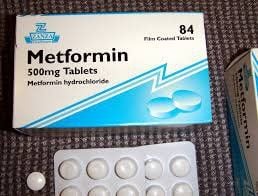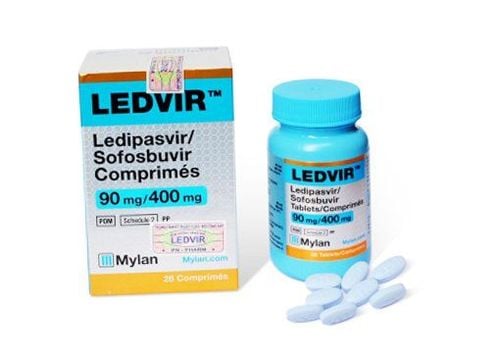This is an automatically translated article.
Carbohydrates provide about 45 to 65% of the body's energy, including the brain's energy source. In addition, carbohydrates also help the body to stabilize blood sugar. Carbohydrate dysregulation can occur when there is a defect in the formation of glucose or other sugars. The disease can cause bad effects on health, in severe cases can cause kidney failure, liver failure, heart failure...1. The role of carbohydrates and the disorder of carbohydrate metabolism
1.1. The role of carbohydrates
Carbohydrates as an essential part provide macronutrients and micronutrients. Carbohydrates provide energy for the body to perform all of its daily activities, while also providing energy for the brain and muscles. In addition, carbohydrates affect blood sugar and insulin levels, fat metabolism, and the absorption of nutrients during digestion.Carbohydrates are an essential part of a healthy and balanced diet. Carbohydrates make up 45 to 65% of a person's total energy intake. The main sources of carbohydrates include vegetables, fruits, whole grains or legumes. These foods have a fairly high fiber content and especially bring many health benefits such as protecting the heart, intestines,... According to experts' recommendations, fiber content for adults per day Should provide 25 to 38 grams per day, but for children, the recommended amount of fiber depends on the age group.
1.2. Carbohydrate metabolism disorder
Carbohydrate metabolism disorders can occur when there is a defect in the formation of glucose from other sugars or from starch. Carbohydrate metabolism disorders mainly have two main types:Inherited carbohydrate metabolism disorders with genetic defects leading to a lack of certain metabolic enzymes in sugar metabolism. Patients with the disease can have very severe symptoms, if left untreated, may have a poor prognosis such as galactosemia, mannose diabetes, mucopolysaccharide disease, pompe disease, glycogen storage disease, pyruvate dehydrogenase deficiency, stasis disease. fructose sugar. Diagnosis of the disease in this case requires quantification of the corresponding enzyme levels in the body and corresponding genetic testing. If the baby is at risk, the doctor should perform a postpartum screening test to help detect the disease early. In addition, genetic testing of family members may be performed if an inherited condition is suspected. Acquired carbohydrate metabolism disorders are common in people with diabetes. It occurs due to lack of insulin hormone or body resistance to insulin hormone and causes this condition. Diabetes can be detected early by screening, even when a person has no symptoms. However, if the patient does not exercise control of blood sugar in the body, it can make the disease worse, causing complications that negatively affect health, such as ketoacidosis or coma due to hypertension. blood osmolality, or hypoglycemia, and possible complications such as cardiovascular events, diseases related to the kidneys, blood vessels or nerves,... The disease is common in adults and some Few young people can get it. Although serious illness is not as common as a genetic condition, it can be controlled with lifestyle changes.
2. Common types of carbohydrate metabolism disorders
2.1. Fructose metabolism disorder
Fructose- monosaccharide is present in high concentrations in fruits and honey and is a constituent of sucrose and sorbitol. Fructose metabolism disorders can be caused by the following factors:Deficiency of fructose 1-phosphate aldolase - aldolase B. Deficiency of this compound causes a clinical syndrome of hereditary fructose intolerance. When healthy children eat fructose, fructose 1-phosphate aldolase accumulates later and causes hypoglycemia, nausea and vomiting, sweating, lethargy, convulsions, coma,... During prolonged feeding can cause cirrhosis, mental decline, proximal tubular acidosis,... Fructokinase deficiency. This deficiency increases the fructose content in the blood and in the urine benignly. The condition has no specific symptoms and is diagnosed when a metabolite other than glucose is detected in the urine. Fructose 1,6-biphosphatase deficiency. This deficiency affects gluconeogenesis and causes hypoglycemia, ketosis, and acidosis. This deficiency can be fatal in children, especially in infants. Acute treatment of fructose-1,6 biphosphatase deficiency can be performed using oral or intravenous glucose.
2.2. Galactosemia
Galactosemia is a disorder of carbohydrate metabolism caused by an inherited deficiency of the enzyme that converts galactosemia into glucose. And galactosemia is often found in dairy products, fruits and vegetables.galactose-1-phosphate uridyl transferase deficiency. This deficiency causes the typical galactosemia in infants with anorexia and jaundice a few days or weeks after consuming breast milk or formula containing lactose. Children may experience vomiting, enlarged liver, poor growth, diarrhea and sepsis or kidney dysfunction,... These conditions, if left untreated, can lead to dwarfism and poor cognitive development. , children have difficulty in talking, walking,... Deficiency of galactokinase. Cases in patients who develop cataracts due to galactitol production will cause osmotic lens damage, primary raised intracranial pressure. Deficiency of uridine diphosphate galactose 4- epimerase can result in benign and malignant phenotypes. The benign form is limited to red and white blood cells and does not cause clinical abnormalities. The more severe form will cause syndromes indistinguishable from blood galactose, although there are symptoms of hearing loss.
2.3. Glycogen storage disease
Glycogen storage disease belongs to one of the types of disorders of carbohydrate metabolism, caused by a deficiency of enzymes involved in the synthesis and hydrolysis of glycogen. This deficiency usually occurs in the liver and muscles and can cause hypoglycemia or abnormal deposition of sugar in the tissues.Clinical manifestations as well as severity of the disease can vary by type and age of onset. However, the common symptoms of the disease are low blood sugar and muscle-related diseases.
Defects in the breakdown of carbohydrates can cause a syndrome similar to glycogen storage disease. Deficiency of phosphoglycerate kinase, phosphoglycerate mutase can mimic the myopathy of glycogen storage.
2.4. Disorders of pyruvate metabolism
The substance pyruvate should be quite important in the metabolism of carbohydrates. And pyruvate disorders also include carbohydrate disorders.Pyruvate dehydrogenase deficiency. The multi-enzyme complex is responsible for generating acetyl CoA from pyruvate for the Krebs cycle. Deficiency of this substance will lead to elevation of pyruvate and increased concentration of lactic acid. Deficiency of pyruvate carboxylase - an enzyme important for gluconeogenesis from pyruvate and alamon produced in the body. Deficiency can be primary or secondary due to lack of holocarboxylase, biotin, etc.
2.5. Disorders of other types of carbohydrates
Phosphoenolpurvate carboxykinase deficiency can impair gluconeogenesis and lead to symptoms and signs similar to glycogen storage disease. But there is no glycogen accumulation in the liver.Either glycolytic enzyme or enzyme deficiencies in the pentose phosphate pathway can lead to hemolytic anemia. Disorders of carbohydrate metabolism
Please dial HOTLINE for more information or register for an appointment HERE. Download MyVinmec app to make appointments faster and to manage your bookings easily.













